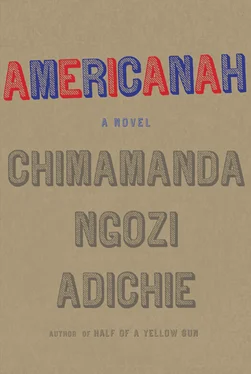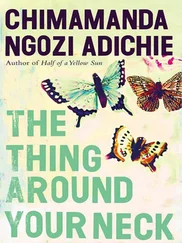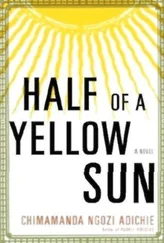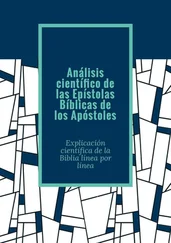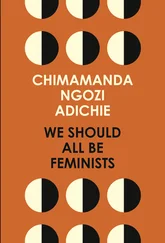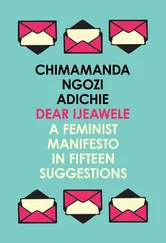Obinze, from the other end of the bar, had said, “Good!” drawing strange looks from everyone.
He was still watching Kosi and Buchi talk to the red-lipped clown, when Okwudiba arrived. “The Zed!”
They hugged, thumped backs.
“How was China?” Obinze asked.
“These Chinese people, ehn. Very wily people. You know the previous idiots in my project had signed a lot of nonsense deals with the Chinese. We wanted to review some of the agreements but these Chinese, fifty of them will come to a meeting and bring papers and just tell you ‘Sign here, sign here!’ They will wear you down with negotiation until they have your money and also your wallet.” Okwudiba laughed. “Come, let’s go upstairs. I hear that Ahmed packed bottles of Dom Pérignon there.”
Upstairs, in what seemed to be a dining room, the heavy burgundy drapes were drawn, shutting out the daylight, and a bright elaborate chandelier, like a wedding cake made of crystals, hung down from the middle of the ceiling. Men were seated around the large oak table, which was crowded with bottles of wine and liquor, with dishes of rice and meat and salads. Ahmed was in and out, giving instructions to the server, listening in on conversations and adding a line or two.
“The wealthy don’t really care about tribe. But the lower you go, the more tribe matters,” Ahmed was saying when Obinze and Okwudiba came in. Obinze liked Ahmed’s sardonic nature. Ahmed had leased strategic rooftops in Lagos just as the mobile phone companies were coming in, and now he sublet the rooftops for their base stations and made what he wryly referred to as the only clean easy money in the country.
Obinze shook hands with the men, most of whom he knew, and asked the server, a young woman who had placed a wineglass in front of him, if he could have a Coke instead. Alcohol would sink him deeper into his marsh. He listened to the conversation around him, the joking, the needling, the telling and retelling. Then they began, as he knew they invariably would, to criticize the government — money stolen, contracts uncompleted, infrastructure left to rot.
“Look, it’s very hard to be a clean public official in this country. Everything is set up for you to steal. And the worst part is, people want you to steal. Your relatives want you to steal, your friends want you to steal,” Olu said. He was thin and slouchy, with the easy boastfulness that came with his inherited wealth, his famous surname. Once, he had apparently been offered a ministerial position and had responded, according to the urban legend, “But I can’t live in Abuja, there’s no water, I can’t survive without my boats.” Olu had just divorced his wife, Morenike, Kosi’s friend from university. He had often badgered Morenike, who was only slightly overweight, about losing weight, about keeping him interested by keeping herself fit. During their divorce, she discovered a cache of pornographic pictures on the home computer, all of obese women, arms and bellies in rolls of fat, and she had concluded, and Kosi agreed, that Olu had a spiritual problem.
“Why does everything have to be a spiritual problem? The man just has a fetish,” Obinze had told Kosi. Now, he sometimes found himself looking at Olu with curious amusement; you could never tell with people.
“The problem is not that public officials steal, the problem is that they steal too much,” Okwudiba said. “Look at all these governors. They leave their state and come to Lagos to buy up all the land and they will not touch it until they leave office. That is why nobody can afford to buy land these days.”
“It’s true! Land speculators are just spoiling prices for everybody. And the speculators are guys in government. We have serious problems in this country,” Ahmed said.
“But it’s not just Nigeria. There are land speculators everywhere in the world,” Eze said. Eze was the wealthiest man in the room, an owner of oil wells, and as many of the Nigerian wealthy were, he was free of angst, an obliviously happy man. He collected art and he told everyone that he collected art. It reminded Obinze of his mother’s friend Aunty Chinelo, a professor of literature who had come back from a short stay at Harvard and told his mother over dinner at their dining table, “The problem is we have a very backward bourgeoisie in this country. They have money but they need to become sophisticated. They need to learn about wine.” And his mother had replied, mildly, “There are many different ways to be poor in the world but increasingly there seems to be one single way to be rich.” Later, after Aunty Chinelo left, his mother said, “How silly. Why should they learn about wine?” It had struck Obinze — they need to learn about wine — and, in a way, it had disappointed him, too, because he had always liked Aunty Chinelo. He imagined that somebody had told Eze something similar — you need to collect art, you need to learn about art — and so the man had gone after art with the zeal of an invented interest. Every time Obinze saw Eze, and heard him talk fumblingly about his collection, he was tempted to tell Eze to give it all away and free himself.
“Land prices are no problem for people like you, Eze,” Okwudiba said.
Eze laughed, a laugh of preening agreement. He had taken off his red blazer and hung it on his chair. He teetered, in the name of style, on dandyism; he always wore primary colors, and his belt buckles were always large and prominent, like buckteeth.
From the other end of the table, Mekkus was saying, “Do you know that my driver said he passed WAEC, but the other day I told him to write a list and he cannot write at all! He cannot spell ‘boy’ and ‘cat’! Wonderful!”
“Speaking of drivers, my friend was telling me the other day that his driver is an economic homosexual, that the man follows men who give him money, meanwhile he has a wife and children at home,” Ahmed said.
“Economic homosexual!” somebody repeated, to loud general laughter. Charlie Bombay seemed particularly amused. He had a rough scarred face, the kind of man who would be most himself in the middle of a pack of loud men, eating peppery meat, drinking beer, and watching Arsenal.
“The Zed! You are really quiet today,” Okwudiba said, now on his fifth glass of champagne. “Aru adikwa ?”
Obinze shrugged. “I’m fine. Just tired.”
“But The Zed is always quiet,” Mekkus said. “He is a gentleman. Is it because he came here to sit with us? The man reads poems and Shakespeare. Correct Englishman.” Mekkus laughed loudly at his own non-joke. At university, he had been brilliant with electronics, he fixed CD players that were considered lost causes, and his was the first personal computer Obinze had ever seen. He graduated and went to America, then came back a short while afterwards, very furtive and very wealthy from what many said was a massive credit card fraud. His house was studded with CCTV cameras; his security men had automatic guns. And now, at the merest mention of America in a conversation, he would say, “You know I can never enter America after the deal I did there,” as though to take the sting from the whispers that trailed him.
“Yes, The Zed is a serious gentleman,” Ahmed said. “Can you imagine Sike was asking me whether I know anybody like The Zed that I can introduce to her sister? I said, Ahn-ahn, you are not looking for somebody like me to marry your sister and instead you are looking for somebody like The Zed, imagine o!”
“No, The Zed is not quiet because he is a gentleman,” Charlie Bombay said, in his slow manner, his thick Igbo accent adding extra syllables to his words, halfway through a bottle of cognac that he had put territorially in front of himself. “It is because he doesn’t want anybody to know how much money he has!”
Читать дальше
